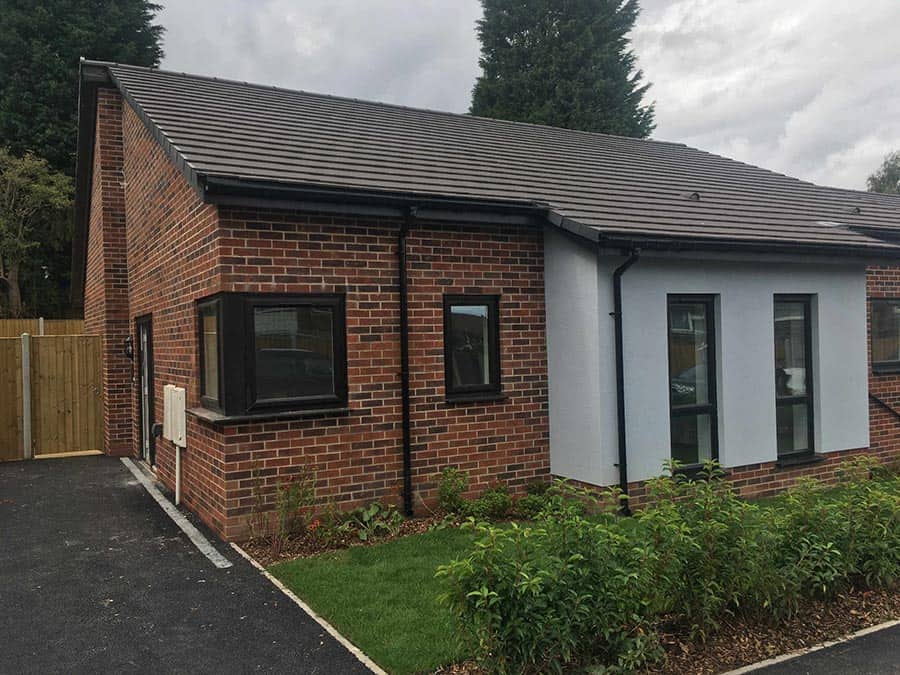Legal Disputes in Construction Projects: How to Resolve Them

Legal disputes are a common challenge in construction projects, often leading to costly delays and financial losses. Whether conflicts arise from contract disagreements, project delays, or workmanship issues, finding an effective resolution is crucial to keeping a project on track. Without proper dispute resolution mechanisms in place, projects can suffer from prolonged legal battles, strained business relationships, and increased expenses, ultimately affecting the overall viability of the development.
To avoid these pitfalls, it is essential to understand the root causes of disputes and implement proactive strategies to mitigate them. By ensuring that contracts are clear, payment terms are well-defined, and project timelines are realistic, many potential conflicts can be preemptively addressed. Additionally, having access to professional advice and using modern technology solutions can help streamline processes, reduce miscommunications, and foster a more cooperative working environment among stakeholders.
Common Causes of Legal Disputes in Construction
Understanding the common triggers of disputes can help in preventing them. These typically include:
Contractual Disagreements
Misinterpretation of contract terms or poorly drafted agreements can lead to significant disputes between parties. Vague or ambiguous clauses may create different expectations among stakeholders, resulting in conflicts over responsibilities, timelines, or deliverables. Ensuring that contracts are precise and legally sound can help minimise such issues from arising. Engaging legal experts to review contracts before signing can help mitigate risks and provide clarity for all involved. Additionally, including dispute resolution clauses in agreements can offer predefined methods for handling conflicts efficiently.
Payment Disputes
Disagreements over project costs, scope creep, or delayed payments often create tension between property owners, contractors, and suppliers. If costs exceed the initial estimates or additional work is required without proper documentation, disputes can escalate quickly. Establishing a structured payment schedule and keeping clear records of transactions can help manage financial disagreements effectively. Clear invoicing and the use of escrow services can provide security for all parties, ensuring payments are made only when agreed-upon milestones are met. Furthermore, maintaining open communication about budget adjustments and unforeseen costs can prevent financial misunderstandings from leading to litigation.
Construction Defects
Poor workmanship or substandard materials can result in legal claims and liability issues. Defects may include structural weaknesses, water leaks, or electrical failures, leading to costly repairs and dissatisfaction among homeowners. Proper quality control measures and hiring reputable professionals can help minimise the risks of defects. Conducting regular site inspections and ensuring compliance with building codes can help detect and rectify issues early. In addition, including warranties and liability coverage in contracts can offer protection against unexpected defects and associated legal consequences.
Planning and Permit Issues
Failure to secure necessary approvals or non-compliance with local building regulations can halt a project, causing unexpected delays and legal challenges. Disputes may arise if contractors proceed with work without the correct permissions, leading to potential fines or enforcement actions from regulatory authorities. Conducting thorough research on local planning requirements before commencing work is essential to avoiding permit-related disputes. Consulting with planning experts or legal advisors can also help navigate complex regulatory requirements and ensure smooth project progression.
Project Delays
Unforeseen delays, such as weather conditions, material shortages, or labour disputes, can result in contractual breaches and claims for damages. If delays impact the overall project timeline and financial agreements, stakeholders may seek compensation or legal action against those responsible. Implementing realistic schedules and contingency plans can help manage the impact of delays. Additionally, maintaining strong contractual provisions regarding force majeure events can protect parties from legal liability in cases of unavoidable disruptions. Effective project management software can also enhance scheduling efficiency and help track progress to mitigate risks associated with unforeseen delays.
Methods for Resolving Construction Disputes
Disputes can be resolved through several methods, each with varying levels of cost, complexity, and legal involvement. The chosen approach depends on the severity of the disagreement and the willingness of both parties to seek an amicable resolution.
Negotiation
The first step in resolving disputes should always be open communication and negotiation. Many issues can be settled amicably by clarifying expectations, discussing concerns, and seeking a fair compromise. Establishing a culture of transparency and regular check-ins throughout the project can prevent minor misunderstandings from escalating into legal battles. Engaging in early conflict resolution meetings can also help address grievances before they turn into larger disputes. Keeping written records of all negotiations can provide useful documentation should further legal action become necessary.
Mediation
If negotiation is unsuccessful, mediation offers a structured but informal alternative. A neutral third party helps both sides reach a mutually agreeable solution, facilitating discussions and ensuring both parties feel heard. Mediation is less expensive and faster than court proceedings, making it a preferred method for resolving disputes without legal intervention. It allows both parties to maintain control over the resolution process rather than having a court-imposed judgment. Additionally, mediation helps preserve business relationships by fostering cooperation rather than adversarial interactions.
Arbitration
Arbitration is a more formal dispute resolution process where an independent arbitrator reviews the case and makes a legally binding decision. This approach is typically less costly than litigation but still ensures a fair resolution based on evidence and contractual agreements. Many construction contracts include arbitration clauses to provide an efficient resolution mechanism in case of disputes. Arbitration proceedings are usually confidential, protecting sensitive business information from public exposure. Moreover, arbitration can be tailored to suit the specific needs of the construction industry, with arbitrators experienced in technical aspects of building projects.
Litigation
As a last resort, disputes may need to be settled in court. Litigation is often the most time-consuming and expensive method of dispute resolution but may be necessary for severe contractual breaches, significant financial claims, or cases where alternative methods have failed. Engaging experienced legal counsel is crucial in navigating court proceedings effectively. Litigation may provide the most enforceable outcome, particularly in cases involving large financial disputes or breaches of statutory requirements. However, due to its cost and potential for prolonged delays, litigation should be considered only after exhausting all alternative resolution methods.
How Loomin Can Help Prevent and Manage Disputes
Loomin is a marketplace that connects homeowners with fixed-fee, ARB-registered architects, ensuring greater transparency and efficiency in construction projects. Through Loomin’s SaaS-enabled platform, homeowners can avoid many of the common causes of disputes by accessing professional guidance and maintaining clear documentation from the outset. By using a structured digital platform, users can better manage expectations and reduce the risk of miscommunication between different parties.
One of the primary ways Loomin helps mitigate disputes is by offering fixed-fee quotes from experienced architects. This eliminates the uncertainty of fluctuating costs, ensuring that homeowners receive high-quality services within a pre-agreed budget. By removing cost ambiguity, the likelihood of payment disputes is significantly reduced, giving homeowners greater confidence in their financial planning.
In addition, Loomin enhances project management by providing tools for:
- Virtual design reviews and document storage – Keeping all architectural plans, approvals, and documentation in one place ensures easy access and reduces administrative hassle. This organised approach eliminates the risk of lost paperwork and simplifies compliance with building regulations.
- Scheduling and communication – Homeowners can arrange meetings, track project progress, and maintain clear communication with architects and contractors, reducing the risk of misalignment and project delays.
- Contractor matching – The platform helps connect homeowners with reliable, cost-effective contractors, ensuring competitive pricing and quality workmanship. By offering a vetted network of professionals, Loomin minimises the risks associated with poor-quality construction or hiring unqualified workers.
By using Loomin, homeowners can mitigate potential disputes before they arise, ensuring a smoother and legally compliant construction process. The ability to store contracts, track payments, and engage with trusted professionals within a single platform reduces stress and enhances the overall efficiency of residential builds.
Conclusion
Legal disputes in construction can be stressful and costly, but they can often be avoided through proper planning, clear contracts, and effective communication. By understanding the common causes of disputes, such as contract disagreements, payment issues, construction defects, planning approvals, and project delays, homeowners and developers can take proactive measures to reduce risks. Establishing detailed project documentation, maintaining open communication channels, and working with experienced professionals can help prevent conflicts before they escalate into legal battles.
When disputes do arise, methods like negotiation, mediation, arbitration, and litigation offer pathways to resolution, with varying degrees of cost and complexity. Negotiation and mediation provide quicker, more cost-effective solutions, while arbitration and litigation may be necessary for more serious conflicts. Having clear contract terms, dispute resolution clauses, and contingency plans in place can ensure that disagreements are handled efficiently and fairly.
Utilising a platform like Loomin can help homeowners prevent disputes, streamline project management, and ensure they engage with qualified professionals. By integrating technology, clear communication, and professional expertise, Loomin provides a seamless way to minimise risks and enhance the overall success of construction projects. Homeowners can benefit from structured contract agreements, reliable contractor matching, and real-time project tracking, reducing uncertainty and improving project outcomes. Ultimately, leveraging digital solutions like Loomin empowers homeowners and developers to navigate the complexities of construction projects with greater confidence and security.
.png)


